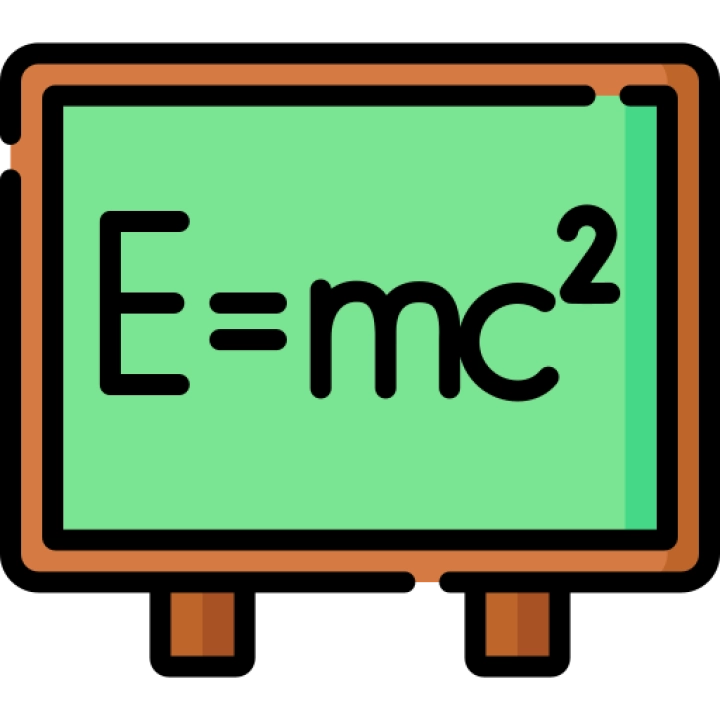College: Graduate Studies Program Institute
This major focuses on the fundamental principles of the physical world, exploring key areas such as classical mechanics, electromagnetism, quantum mechanics, and thermodynamics.
The program emphasizes theoretical understanding, experimental skills, and the application of physical principles to solve real-world problems.
Students develop critical thinking, problem-solving abilities, and a deep understanding of natural phenomena. Graduates are prepared for careers in research, academia, industry, and various scientific and technological fields.
Learning Objectives:
- Understand the fundamental principles of physics and their applications.
- Develop skills in theoretical analysis, experimental design, and data interpretation.
- Learn techniques for solving complex physical problems using mathematical and computational methods.
- Explore the role of physics in various scientific and technological advancements.
- Understand the principles of scientific inquiry, ethical considerations, and professionalism in physics.
- Analyze challenges and opportunities in the field of physics.
- Develop teamwork and problem-solving skills for scientific research and applications.
Main Outline:
- Introduction to Physics
- An overview of physics and its history, and fundamental concepts.
- Basics of physical principles and scientific methods.
- Classical Mechanics
- Study of classical mechanics, including kinetics, dynamics, and energy.
- Techniques for analyzing and solving mechanical problems.
- Electromagnetism
- Basics of electromagnetism, including electric and magnetic fields, waves, and circuits.
- Techniques for understanding and applying electromagnetic principles.
- Quantum Mechanics
- Principles of quantum mechanics, including wave functions, Schrödinger's equation, and quantum states.
- Techniques for solving quantum mechanical problems and interpreting quantum phenomena.
- Thermodynamics and Statistical Mechanics
- Principles of thermodynamics, including heat, work, entropy, and the laws of thermodynamics.
- Techniques for analyzing thermal systems and statistical mechanics.
- Optics and Wave Phenomena
- The study of optics, including light, waves, and optical devices.
- Techniques for understanding and applying wave phenomena and optical principles.
- Experimental Physics
- Methods for designing and conducting experiments, collecting and analyzing data.
- Techniques for using experimental results to test theories and models.
- Mathematical and Computational Methods in Physics
- Principles of mathematical and computational methods used in physics.
- Techniques for solving complex physical problems using mathematical tools and computational simulations.
- Emerging Trends in Physics
- Analysis of innovations such as nanotechnology, quantum computing, and astrophysics.
- Techniques for adapting to new trends and technologies in the field.
- Capstone Project in Physics
- A real-life project to apply acquired skills in theoretical analysis, experimental design, or scientific research.
- Techniques for providing comprehensive solutions to physical problems and challenges.
Assessment Methods:
- Theoretical analysis projects, experimental designs, data analysis reports, research papers, group projects, and laboratory work.
Recommended Textbooks:
- "Fundamentals of Physics" by David Halliday, Robert Resnick, and Jearl Walker.
- "Introduction to Electrodynamics" by David J. Griffiths.
- "Introduction to Quantum Mechanics" by David J. Griffiths and Darrell F. Schroeder.
- "An Introduction to Thermal Physics" by Daniel V. Schroeder.
Prerequisites:
- A strong foundation in mathematics, including calculus and algebra.
- Basic knowledge of physics and scientific methods.
- Suitable for students interested in physics, engineering, and related scientific fields.
Duration of the Major:
Typically 4 years to obtain a bachelor's degree, including coursework, laboratory work, and research projects. Advanced degrees may take additional years.
Certification:
Graduates may earn a degree in physics and pursue specializations or professional certifications in specific areas of physics.
Target Audience:
Aspiring physicists, researchers, engineers, and scientists who seek to specialize in theoretical and experimental physics, scientific research, and technological applications.
This major equips students with the theoretical, experimental, and practical skills necessary to excel in physics, support advancement in scientific research, technological innovation, and understanding natural phenomena.






